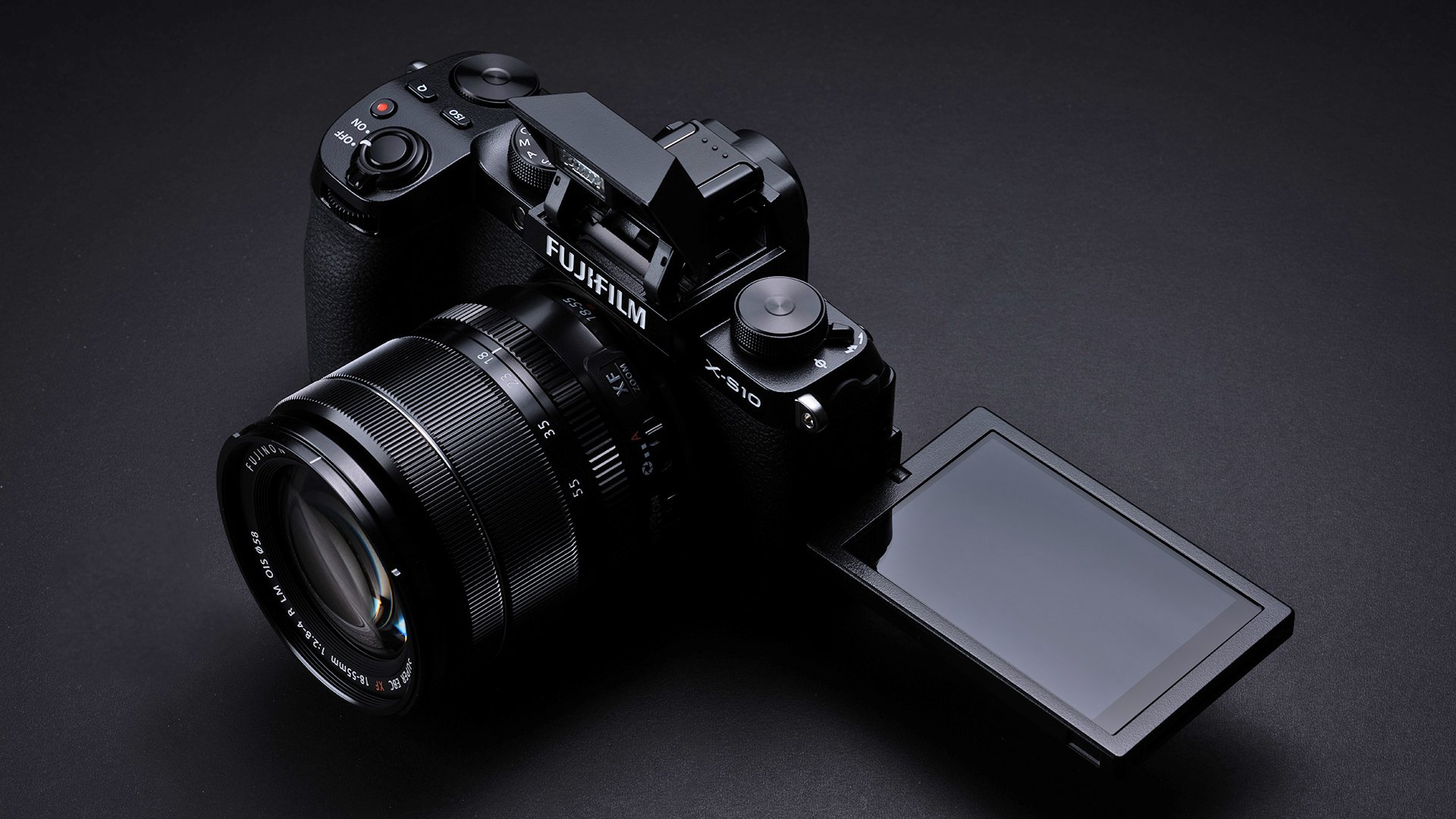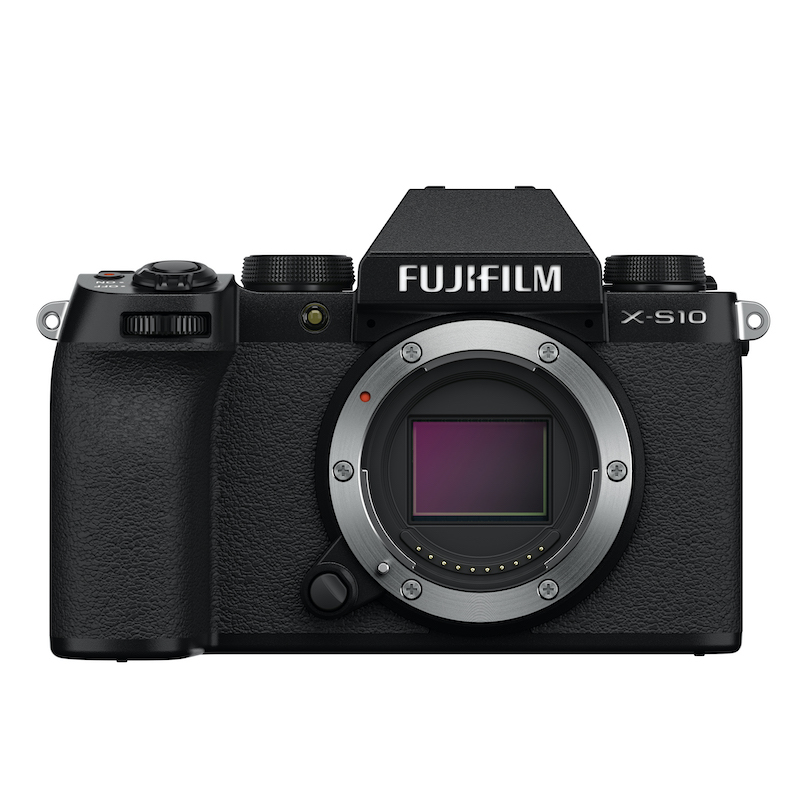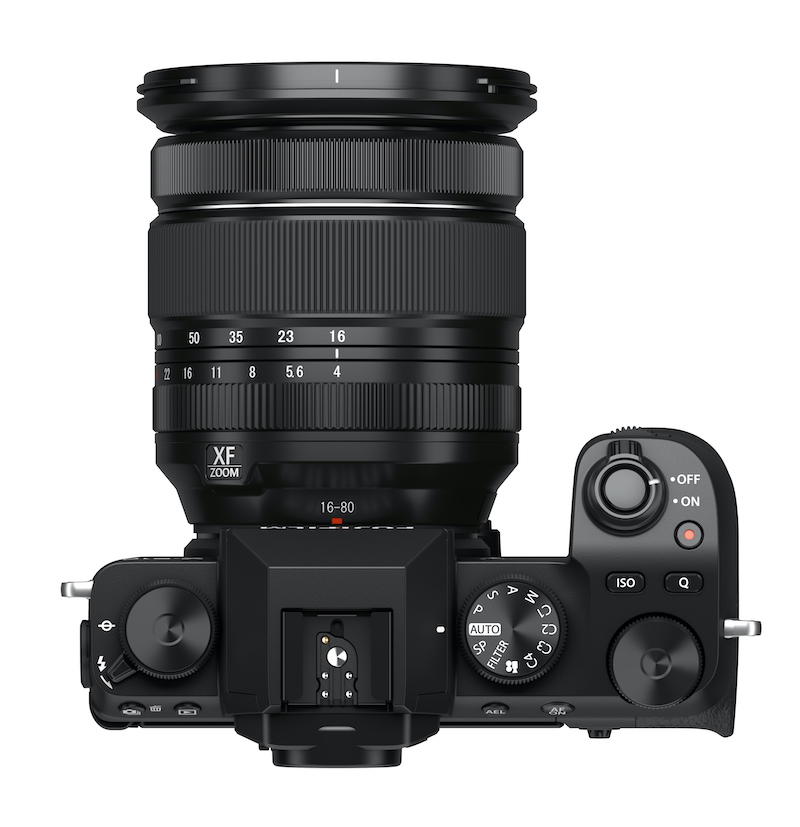
FUJIFILM has just announced its new X-S10 mirrorless camera, and going by the specs it looks like a great mid-range addition to the company’s X series.

FUJIFILM's new X-S10 mirrorless camera. Image: FUJIFILM.
On paper FUJIFILM’s latest addition to its X series mirrorless range would seem to be somewhat of a miniature X-T4 It shares the same sensor and processor as that camera, although there are some differences, as you’d expect given the price difference.
The X-S10 has a 26.1MP X-Trans APS-C CMOS sensor and incorporates a five-axis in-body image stabilisation (IBIS) system, which the company claims gives an advantage of up to 6 stops. Yet the new stabilisation system is 30% smaller in volume and weight than the X-T4. It also features a motion sensor retention mechanism that guards against vibrations caused by the shutter release. The X-S10 weighs in at an almost featherweight 465g without lens.

FUJIFILM X-S10 articulating screen. Image: FUJIFILM.
The camera incorporates many of the well regarded features found in the other models in the X series, such as AUTO/SP mode, which automatically adjusts the camera settings without the need for the user to make fine adjustments. It also features 18 film simulation modes, all of which can be quickly selected by a physical dial on the top of the body. This includes bleach bypass version of the ETERNA simulation, just in case you feel like making a reboot of Ronin or Saving Private Ryan.
X-S10 autofocus
Autofocus on the X-S10 is taken care of by way of a phase detection system that covers 100% of the sensor area. FUJIFILM claims that the system can lock focus in as short a time as 0.02 seconds even with a -7.0EV setting. Face and eye detection is here along with tracking, and the camera can take high speed bursts using the electronic shutter of up to 30fps, with 8fps being possible using the mechanical shutter.

The FUJIFILM X-S10 front view. Image: FUJIFILM.
The rear of the camera houses a fully articulating LCD display. This has three boost modes available for it including low light priority, resolution priority, and frame rate priority.
From a video perspective the X-S10 can record 4K video at up to 30p, which is downsampled from 6K’s worth of data. Recording internally takes place with 4:2:0 colour resolution and 8-bit precision. Externally the camera can output a 4:2:2 10-bit signal for external recorders. Raw output is not mentioned, however given the rate at which cameras are being announced that do this, we wouldn’t be surprised to see an announcement made further down the line.

FUJIFILM X-S10 top view. Image: FUJIFILM.
In video mode the camera can take advantage of digital image stabilisation by combining it with the IBIS system. An additional IS boost mode is available to give almost tripod like stability when the camera is being handheld at a fixed position.
One thing that the X-S10 lacks vs the X-T4 is weather sealing. You can’t have everything, however it is still built around a magnesium alloy chassis, so it should still keep a high degree of robustness. But for hobbyists or videographers who are on tighter budgets and who would like a high value, highly capable camera, the X-S10 is looking like a very good bet indeed.
The X-S10 will be available from mid-November and will be priced at USD$999.95 for the body only, USD$1399.95 with an XF18-55mm f/2.8-4 R lens, and USD$1499.95 with an XF16-80mm f/4 R OIS WR lens. For more information visit the FUJIFILM website.
Tags: Production Editor


Comments